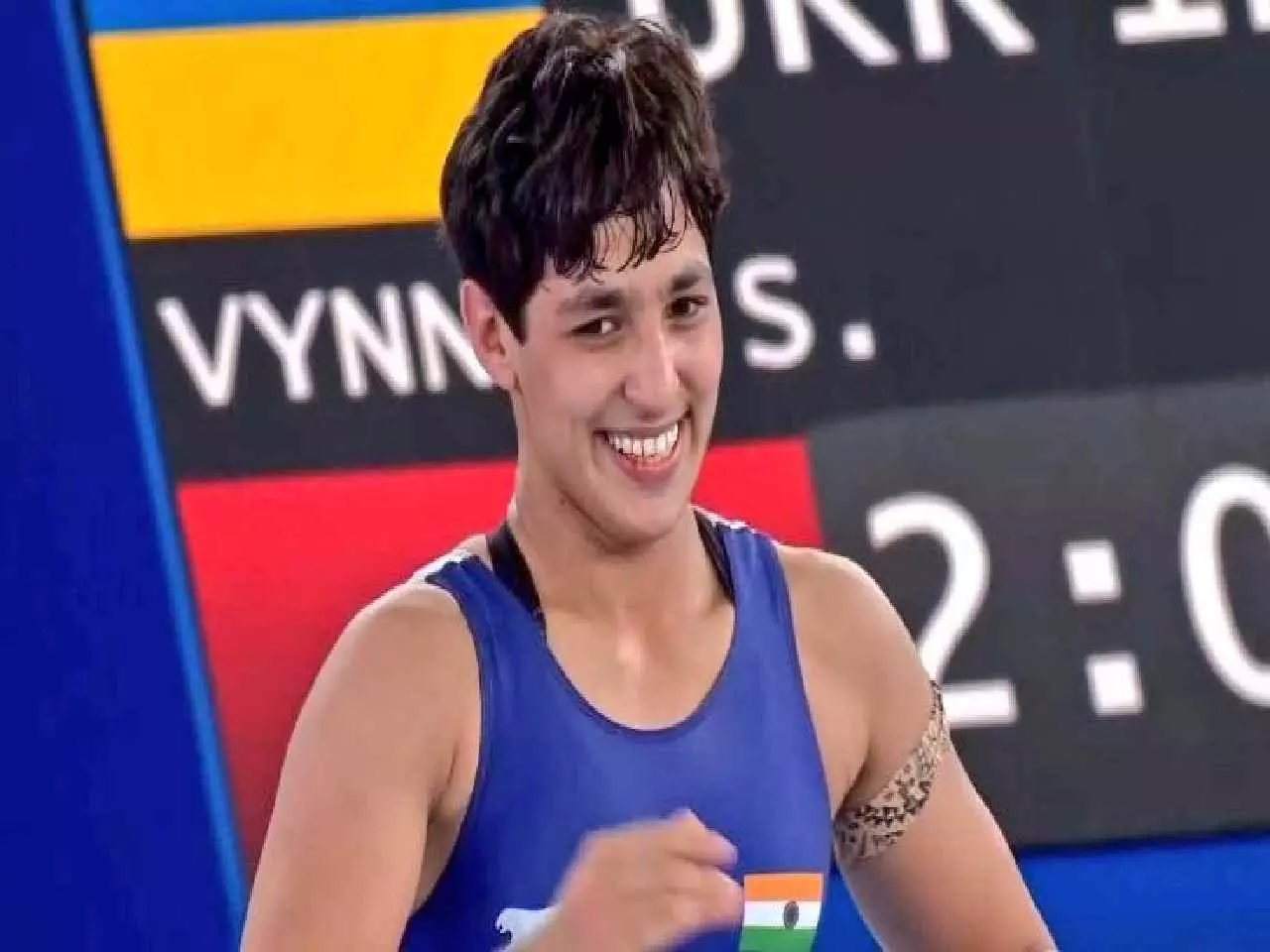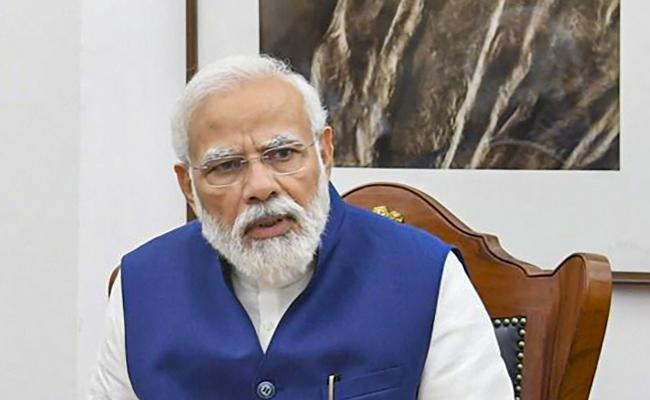Oslo (Norway), Oct 6: Anshu Malik on Wednesday created history by becoming the first Indian woman wrestler to reach the World Championship final when she outclassed junior European champion Solomiia Vynnyk but Sarita Mor lost her semifinal and will fight for a bronze here.
The 19-year-old Anshu, the reigning Asian champion, controlled the semifinal from the beginning and won by technical superiority in the 57kg category to go into history books.
Only four Indian women wrestlers have won medals at the Worlds and all of them -- Geeta Phogat (2012), Babita Phogat (2012), Pooja Dhanda (2018) and Vinesh Phogat (2019) -- have clinched bronze.
"It's extremely satisfying. I am so happy. It feels so good. What I could not do at the Tokyo Games I did that here. I fought each and every bout as my last bout," said Anshu after making the final.
"The month after the Tokyo Games was very tough. I could not perform as I had wanted at the Games. I suffered an injury (elbow) and can't explain how much pain I endured one month before the World championship.
"I trained hard for this, I wanted to give my 100 per cent and will fight final like my last bout," she said.
Anshu had lost her first round bout and also repechage round at the Tokyo Olympics.
Anshu also became only the sixth Indian ever to make the Worlds gold medal match after Bishambar Singh (1967), Sushil Kumar (2010), Amit Dahiya (2013), Bajrang Punia (2018) and Deepak Punia (2019).
India has only one world Champion in Sushil till date and Anshu can create another history on Thursday.
Anshu's win also ensured India's first medal from this edition of the event.
Anshu was clever with her moves. At least thrice, she effected take-down moves from the left of Vynnyk and finished the bout with an exposure move. The Nidani girl started competing in the senior circuit only from last year and has made a steady progress since then.
Earlier, she was hardly troubled by Kazakhstan's Nilufar Raimova, whom she beat by technical superiority and later outwitted Mongolia's Davaachimeg Erkhembayar 5-1 in the quarterfinals.
Seasoned Sarita Mor shocked defending champion Linda Morais 8-2 in her opening bout and beat Germany's Sandra Paruszewski 3-1 in the quarterfinals.
Up against the reigning European champion from Bulgaria Bilyana Zhivkova Duodova, Sarita fought her heart out but lost 0-3. She will now fight for a bronze.
The reigning Asian champion had a tough opening bout against the 2019 World champion from Canada but came out trumps with a tactical 8-2 win in the pre-quarterfinals.
A quick take-down move, followed by an expose together with some superb defence put Sarita 7-0 ahead by the time the first period was over.
The only scoring point she conceded was a take-down move in the second period. She did not let Linda play her game, keeping her in lock positions.
Later, the quarterfinal against Paruszewski turned out to be a tougher bout, in which the two wrestlers were largely restricted to standing fight which took a lot out of them.
There was only one point-scoring move, a take down effected by Sarita late in the match and that sealed the outcome.
In the 72kg, Divya Kakran stunned Kseniia Burakova with a 'win by fall' but lost by technical superiority to Japan's Under-23 world champion Masako Furuich.
The 2020 Asian champion Divya fought her heart out in both the bouts and wriggled out of difficult positions umpteen times but hurried moves and over aggression cost her the quarterfinal against the Japanese.
Meanwhile, Kiran (76kg) won her repechage round against Turkey's Aysegul Ozbege to reach bronze play-off but Pooja Jatt (53kg) lost her repechage by fall to Eucuador's Luisa Elizabeth Melendres.
Kiran will face 2020 African champion Samar Amer Ibrahim Hamza.
Ritu Malik (68kg) was blown away by Ukraine's Anastasiia Lavrenchuk in the qualification bout that lasted only 15 seconds. It seemed Ritu was carrying a knee injury.
Let the Truth be known. If you read VB and like VB, please be a VB Supporter and Help us deliver the Truth to one and all.
New Delhi (PTI): Prime Minister Narendra Modi on Sunday night spoke to the President of the UAE, Sheikh Mohamed bin Zayed Al Nahyan, and strongly condemned the attacks on the Gulf nation, saying India stands in solidarity with the UAE in these difficult times.
Mod also thanked the UAE president for taking care of the Indian community living in the Gulf nation, and said New Delhi supports de-escalation, regional peace, security and stability.
"Spoke with President of the UAE, my brother Sheikh Mohamed bin Zayed Al Nahyan. Strongly condemned the attacks on the UAE and condoled the loss of lives in these attacks. India stands in solidarity with the UAE in these difficult times.
"Thanked him for taking care of the Indian community living in the UAE. We support de-escalation, regional peace, security and stability," Modi wrote on X.
Iranian strikes across the UAE in the past two days have resulted in three fatalities and injuries to 58 people, including an Indian national, officials confirmed on Sunday.
The Indian Embassy in the UAE, in a social media post, said it was aware of the injury to the Indian national and was in touch with the hospital authorities.
The UAE's defence ministry said it intercepted 165 ballistic missiles, of which 152 were destroyed, and 13 drowned in the sea.
It also destroyed two cruise missiles and 541 Iranian drones, 506 of which were shot down, the ministry said.
Iran's Supreme Leader Ayatollah Ali Khamenei was killed in a coordinated US-Israeli airstrike on Tehran early Saturday, with the Iranian state media confirming the death on Sunday.
Iran began firing missiles at Israel and the Arab countries in the region in retaliation for the killing of its supreme leader.





